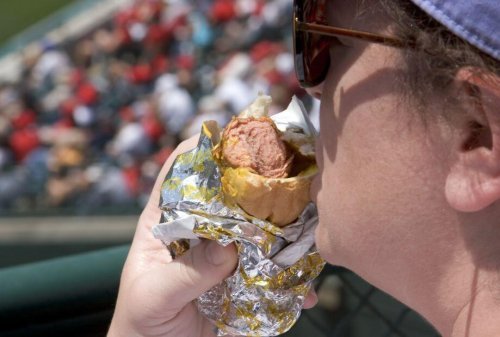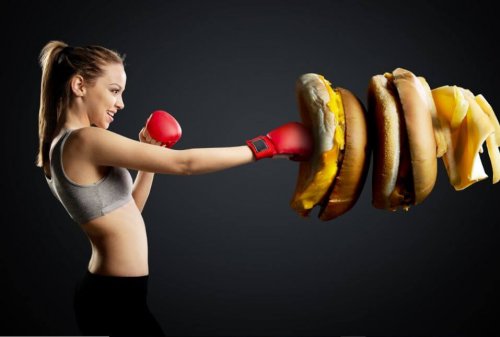Can They Prohibit Food Entry to Sporting Events?

You bought a ticket to watch the Champions League final, a boxing match, or a basketball game, and you’re organizing what to take. The prohibition of food entry to sporting events (and also cultural or artistic shows) is a fact in most cases. Is it ok or not? We will analyze it in this article.
Food entry at sporting events: yes or no?
If you are the event organizer and you have several stalls selling food and drinks on the premises, it won’t be to your liking for attendees to take a snack, a bottle of water, or a sandwich in their bag.

Now, as spectators, we feel as if we’re being held hostage! It can be upsetting to enter a stadium and not being able to pass, if we have food. This turns us into compulsory consumers when we feel hungry or thirsty during the show.
What’s worst of all, is that in some cases, the prices inside the premises are higher than the ones in the supermarket or corner stores. It’s similar to what happens in airports with the “law of supply and demand.” This allows them to charge ten times more for a coffee than anywhere else.
They prohibit you from entering with a drink, through the metal detector or tape. Like at the movies, where popcorn costs you “an arm and a leg” and it’s accompanied by giant-sized sodas at an XXL price.
Going back to the sporting events, the organizers hold the rights to admission. That is, they can decide what items can enter, and what can’t, because it’s a private area. It has little to do with safety, since they often sell the same products that you can buy outside. It’s mostly about making money, and sometimes it feels as if event organizers are taking advantage.
The unhealthy foods at stadiums
This is another issue that’s worth analyzing because if we are prohibited from entering with food, to sporting events, then they should at least offer us healthy options! This doesn’t seem to be a priority for organizers. Perhaps they consider that the only healthy people, are the ones in the field, not those who watch the game?

Therefore, not only do they force us to buy food inside the stadium, but they also offer menus containing calories, fats, and sugars. The typical menu is made up of greasy foods: hot dogs, sausage sandwiches, breaded steak, burritos, fried potatoes, hamburgers and paninis, etc.
As for beverages, soft drinks and beer (in some cases) are at the top of the best-selling list. This is because we won’t find a fresh juice or a banana smoothie by chance.
It’s true that a sports show doesn’t last too long. On average, we will spend two or three hours at an event. Depending on how the schedule unfolds, we can eat outside, before or after the game. By doing this, we will save a lot of money, in addition to avoiding access problems too.
In some cities or countries, there are laws that defend and support the consumer. However, they aren’t always met in private enclosures. Therefore, it’s good to consult the current regulations to know if it’s legal or not to prohibit the entry of food to sporting events.
You bought a ticket to watch the Champions League final, a boxing match, or a basketball game, and you’re organizing what to take. The prohibition of food entry to sporting events (and also cultural or artistic shows) is a fact in most cases. Is it ok or not? We will analyze it in this article.
Food entry at sporting events: yes or no?
If you are the event organizer and you have several stalls selling food and drinks on the premises, it won’t be to your liking for attendees to take a snack, a bottle of water, or a sandwich in their bag.

Now, as spectators, we feel as if we’re being held hostage! It can be upsetting to enter a stadium and not being able to pass, if we have food. This turns us into compulsory consumers when we feel hungry or thirsty during the show.
What’s worst of all, is that in some cases, the prices inside the premises are higher than the ones in the supermarket or corner stores. It’s similar to what happens in airports with the “law of supply and demand.” This allows them to charge ten times more for a coffee than anywhere else.
They prohibit you from entering with a drink, through the metal detector or tape. Like at the movies, where popcorn costs you “an arm and a leg” and it’s accompanied by giant-sized sodas at an XXL price.
Going back to the sporting events, the organizers hold the rights to admission. That is, they can decide what items can enter, and what can’t, because it’s a private area. It has little to do with safety, since they often sell the same products that you can buy outside. It’s mostly about making money, and sometimes it feels as if event organizers are taking advantage.
The unhealthy foods at stadiums
This is another issue that’s worth analyzing because if we are prohibited from entering with food, to sporting events, then they should at least offer us healthy options! This doesn’t seem to be a priority for organizers. Perhaps they consider that the only healthy people, are the ones in the field, not those who watch the game?

Therefore, not only do they force us to buy food inside the stadium, but they also offer menus containing calories, fats, and sugars. The typical menu is made up of greasy foods: hot dogs, sausage sandwiches, breaded steak, burritos, fried potatoes, hamburgers and paninis, etc.
As for beverages, soft drinks and beer (in some cases) are at the top of the best-selling list. This is because we won’t find a fresh juice or a banana smoothie by chance.
It’s true that a sports show doesn’t last too long. On average, we will spend two or three hours at an event. Depending on how the schedule unfolds, we can eat outside, before or after the game. By doing this, we will save a lot of money, in addition to avoiding access problems too.
In some cities or countries, there are laws that defend and support the consumer. However, they aren’t always met in private enclosures. Therefore, it’s good to consult the current regulations to know if it’s legal or not to prohibit the entry of food to sporting events.
This text is provided for informational purposes only and does not replace consultation with a professional. If in doubt, consult your specialist.








